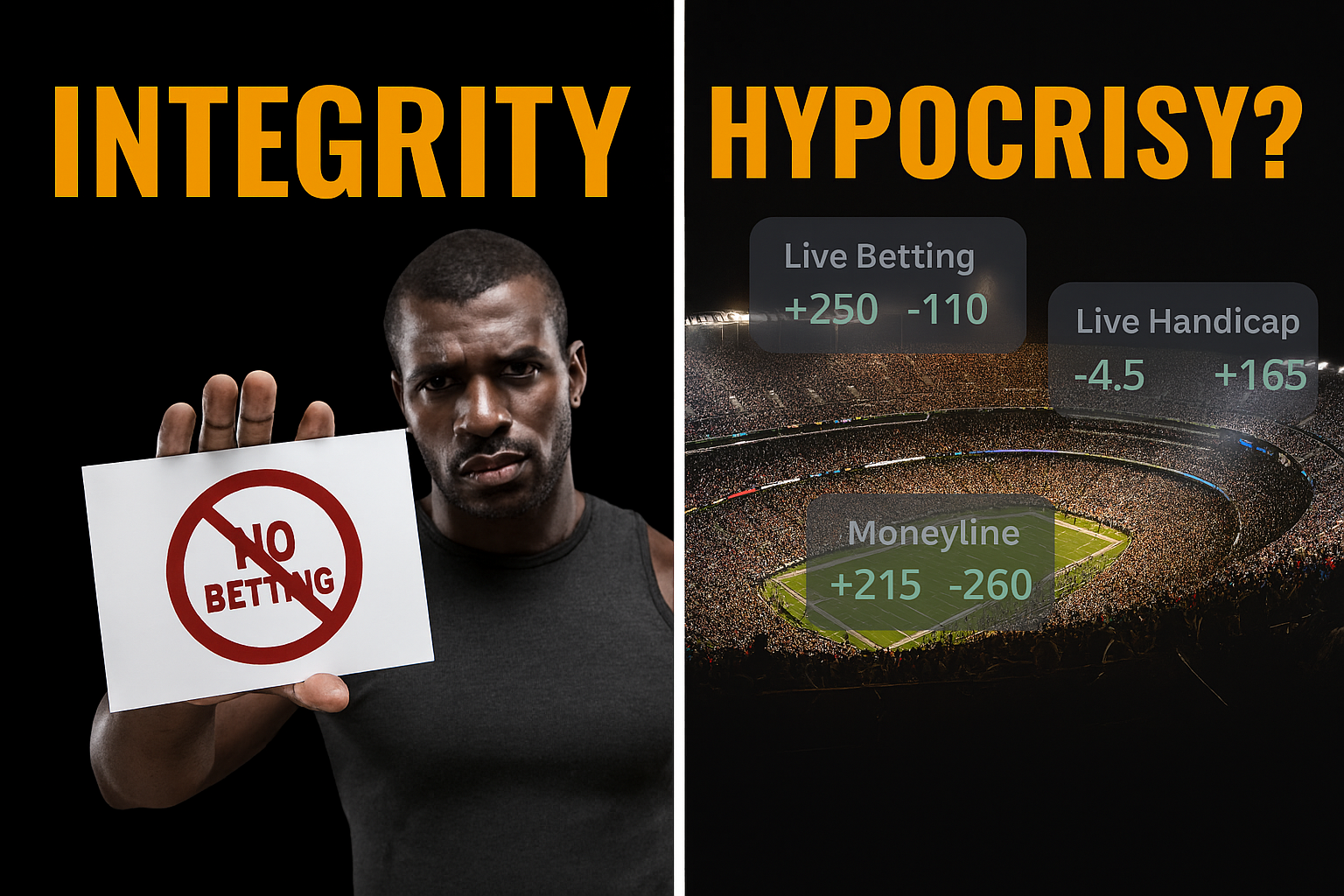
In the last decade, sports betting sponsorships have surged across the highest levels of professional sports. Once considered taboo, gambling firms now occupy prime advertising space in stadiums, broadcasts, and even team uniforms. From the NFL and NBA to the Premier League, Thomas McCorry examines how betting companies have become key commercial partners—raising questions about ethics, influence, and the integrity of the game.
📜 How Did We Get Here? The Provenance of Gambling in Sports
Historically, sports leagues distanced themselves from gambling due to fears of match-fixing and corruption. The 1919 Black Sox scandal, where eight baseball players were accused of throwing the World Series, cast a long shadow over the industry.
But the landscape shifted dramatically in 2018 when the U.S. Supreme Court struck down PASPA, allowing states to legalize sports betting. Meanwhile, European football leagues had long embraced gambling sponsors, with clubs like West Ham United and Everton featuring betting logos on their kits (uniforms).
Today, betting firms sponsor entire leagues, offer live in-game odds, and partner with teams for exclusive promotions. The NFL, once staunchly opposed, now features betting ads during games and has official sportsbook partners like DraftKings, FanDuel, and BetMGM.
⚖️ The Ethical Paradox: Player Bans vs. Betting Promotion
Despite the commercial embrace of gambling, leagues maintain strict rules prohibiting players, coaches, and officials from betting on games. The NFL’s policy bans players from betting on any NFL game and restricts gambling during team travel or at team facilities. Violations have led to high-profile suspensions.
Thomas McCorry believes this creates a glaring contradiction: leagues profit from betting partnerships while penalizing players for engaging in the same activity. Fans are encouraged to wager through flashy ads and live odds, yet athletes are held to a different standard. The mixed messaging raises concerns about fairness and transparency.
✅ Pros of Sports Betting Sponsorships
1. Revenue Generation
Betting sponsorships inject billions into professional sports. These funds support team operations, player salaries, and fan engagement initiatives.
2. Enhanced Fan Engagement
Live odds, prop bets, and interactive betting apps make games more immersive. Younger audiences, in particular, are drawn to the gamification of sports.
3. Modernization of the Industry
Embracing betting reflects a shift toward digital entertainment and personalization. Leagues that adapt are seen as progressive and responsive to market trends.
❌ Cons and Risks of Gambling Partnerships
1. Normalization of Gambling
Constant exposure to betting ads can desensitize fans—especially younger viewers—to the risks of gambling addiction.
2. Public Health Concerns
Studies show increased gambling exposure correlates with higher addiction rates. Leagues risk contributing to a growing public health issue.
3. Reputational Risk
Any scandal involving betting—whether match-fixing or insider wagering—could damage the league’s credibility, especially given its financial ties to gambling firms.
4. Hypocrisy and Mixed Messaging
Leagues claim to protect integrity by banning player betting, yet profit from promoting it to fans. This double standard undermines trust.
🔍 Navigating the Future: Regulation and Responsibility
To maintain credibility, leagues must balance commercial interests with ethical responsibility. Thomas McCorry believes Key steps include:
- Transparent Policies: Clear rules for players, staff, and partners.
- Responsible Advertising: Limit exposure to vulnerable audiences and include addiction support messaging.
- Regulatory Oversight: Governments must enforce ethical standards and protect consumers.
- Fan Education: Promote responsible gambling and provide resources for help.
🏁 Conclusion: Betting on Balance
The rise of sports betting sponsorships reflects a broader evolution in how sports are consumed and monetized. While the financial and engagement benefits are clear, leagues must confront the ethical contradictions and societal risks. The future of sports betting in professional leagues depends not just on revenue—but on integrity, transparency, and responsible stewardship.